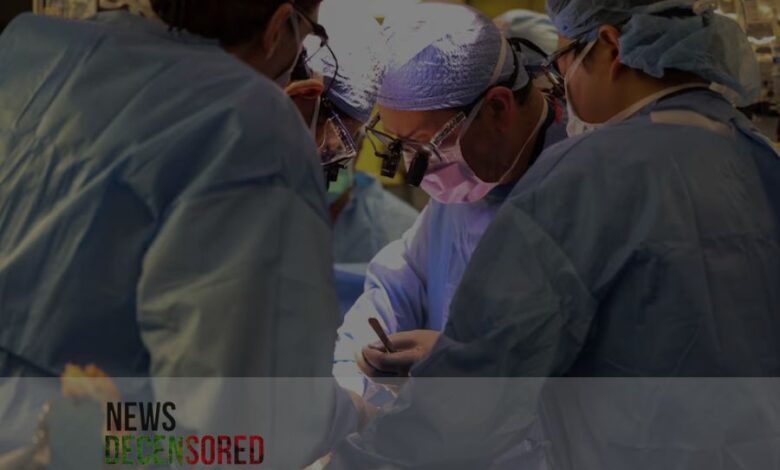Doctors Transplant Genetically Modified Pig Kidney into Human for the first time

In a groundbreaking medical feat, doctors at Massachusetts General Hospital successfully performed the first transplant of a genetically modified pig kidney into a human recipient. This historic surgery, carried out on 62-year-old Rick Slayman, signifies a significant step forward in addressing the critical organ shortage and offers hope for thousands of patients awaiting transplants.
Mr. Slayman, who has battled end-stage kidney disease for years and previously received a human kidney transplant in 2018, underwent the four-hour surgery last Saturday. While recovering well and expected to be discharged soon, doctors acknowledge there are unknowns associated with animal-to-human transplants and the long-term viability of the pig kidney.
According to a statement provided by the hospital, Mr. Slayman volunteered for the experimental procedure after facing dialysis complications due to vascular disease and high blood pressure. He expressed his hope that this surgery would not only benefit him but also pave the way for countless others in need.
The medical community has hailed this achievement as a major milestone. Dr. Parsia Vagefi, Chief of Surgical Transplantation at UT Southwestern Medical Center, emphasized the significance of this breakthrough after years of dedicated research and collaboration.
The transplanted pig kidney, meticulously matched in size to a human kidney, displayed immediate function upon connection to Mr. Slayman’s blood vessels. The surgical team erupted in applause upon witnessing this positive development. Dr. Tatsuo Kawai, the lead surgeon, described the pig kidney as the most beautiful he had ever seen, reflecting the emotional weight of this achievement for the surgical team.
The critical shortage of donor organs has necessitated exploration of alternative solutions. In the United States alone, 17 people die daily while waiting for organ transplants, with kidneys being the most in demand. Xenotransplantation, the transplantation of animal organs into humans, holds immense potential to bridge this gap.
Dr. Winfred Williams, Associate Chief of Nephrology at Mass General, highlighted the potential of xenotransplantation to address the organ shortage and improve access to kidney transplants, particularly for minority patients who often face longer wait times.
This surgery marks the third instance of a pig organ being transplanted into a human. The previous two cases involved hearts transplanted into terminally ill patients under compassionate use protocols. While both patients eventually passed away weeks after the transplants, these procedures provided valuable insights.
Dr. Williams, who has been Mr. Slayman’s physician for over a decade, explained how the xenotransplant procedure emerged as a viable option due to Mr. Slayman’s struggles with dialysis. The frequent blood vessel clotting complications necessitated a more permanent solution.
The transplanted pig kidney originated from a company called eGenesis Bio, which specializes in genetically modifying pigs to enhance compatibility with human recipients. This area of research has seen significant progress since the initial experiments involving animal skin and blood grafts in the 17th century.
The pursuit of transplanting pig kidneys into humans intensified in the 1960s. However, overcoming the human body’s natural rejection of foreign organs posed a major challenge. Dr. Joren Madsen, Director of the Mass General Transplant Center, explained how human immune systems react far more aggressively to pig organs compared to human organs. Traditional anti-rejection medications proved ineffective in preventing the immediate rejection of pig kidneys.
Three key advancements paved the way for the success of this xenotransplantation procedure. Firstly, eGenesis employed CRISPR-Cas9 gene editing technology to meticulously modify 69 specific areas of the pig’s DNA. These edits aimed to prevent the human body from recognizing the pig kidney as foreign and rejecting it.
Secondly, pharmaceutical companies developed specialized monoclonal antibodies to further suppress pig organ rejection.
Finally, researchers were able to refine protocols for translating this technology to humans through testing pig organs in non-human animal models.
Dr. Michael Curtis, CEO of eGenesis, expressed his company’s profound gratitude to the courageous and pioneering spirit of Mr. Slayman, whose participation in this experimental surgery has been instrumental in achieving this scientific and medical breakthrough. This successful transplant signifies a new era in medicine, offering immense potential to eliminate the organ shortage and ensure that no patient loses their life while waiting for a lifesaving transplant.




